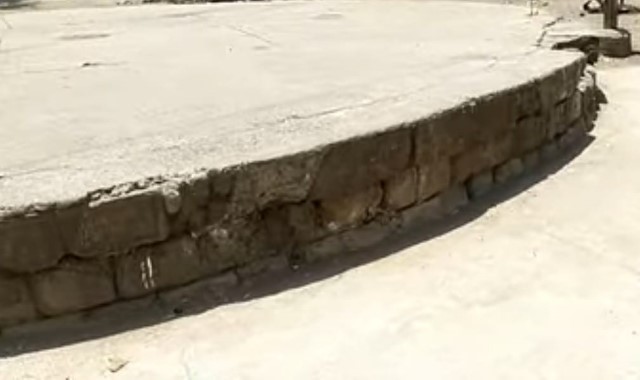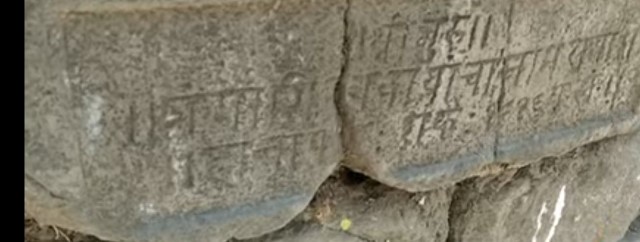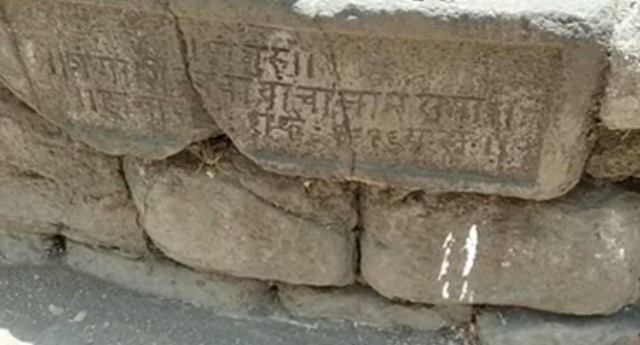|
Sai Mahabhakta Amir Shakkar's name has been mentioned in Chapter 6 and Chapter 22 of Holy Shri Sai Satcharitra. Rama Navami Festival was started for the first time in the year 1897. One, Mr. Gopalrao Gund, was a Circle Inspector at Kopergaon. He was a great devotee of Baba. He had three wives, but had no issue. With Sai Baba’s blessings, a son was born to him. In the joy that he felt regarding the event, an idea of celebrating a fair or ‘Urus’ occurred to him in the year 1897, and he placed it for consideration before other Shirdi devotees, viz. Tatya Patil, Dada Kote Patil and Madhavrao Deshpande (Shama). They all approved of the idea, and got Sai Baba’s permission and blessings. Then an application for getting the Collector’s sanction for celebrating the urus was made, but as the village Kulkarni reported against holding the fair, the sanction was refused. But as Sai Baba had blessed it, they tried again, and ultimately succeeded in getting the Collector’s sanction. The day for the Urus was fixed on the Rama Navami day, after having consultation with Sai Baba. It seems, He had some end in view, in this, viz., the Unification of the two fairs of festivals, the Urus and the Rama Navami and the unification of the two communities - the Hindus and the Mahomedans. As future events showed, this end or object was achieved. Though the permission was obtained, but other difficulties cropped up. Shirdi was a village, and there was scarcity of water. There were two wells in the village, the one in use, dried up soon, and the water from the second was brackish. This brackish water was turned into sweet one by Sai Baba, by throwing flowers into it. The water of this well was insufficient, so Tatya Patil had to arrange to get water, from a well by fixing Moats (leather sacks) thereon, at a considerable distance. Then temporary shops had to be constructed, and wrestling bouts arranged. Gopalrao Gund had a friend, by name Damu Anna Kasar, of Ahmednagar. He also was similarly unhappy in the matter of progeny, though he married two wives. Sai Baba too blessed him with sons, and Mr. Gund prevailed upon his friend to prepare and supply one simple flag for the procession of the fair; he also succeeded in inducing Mr. Nanasaheb Nimonkar to supply another embroidered flag. Both these flags were taken in procession through the village, and finally fixed at the two ends or corners of the Masjid, which is called by Sai Baba as Dwarkamai. This is being done even now. There was another procession, which was started in this fair. This idea of ‘Sandal’ procession originated with one Mr.Amir Shakkar Dalal, a Muslim Bhakta from Korhla Village in Kopergaon Taluk. This procession is held in honour of great Muslim Saints. Sandal i.e. Chandan paste and scrappings are put in the THALI (flat dishes), and these are carried with incense burning before them in procession to the accompaniment of band and music through the village and then after returning to the Masjid, the contents of the dishes are thrown on the ‘Nimbar’ (nitche) and walls of the Masjid with hands. This work was managed by Mr. Amir Shakkar for the first three years, and then afterwards by his wife. So on one day, the two processions, the ‘Flags’ by the Hindus and that of ‘Sandal’ by the Muslims, went on side by side, and are still going on without any hitch (Ref:Shri Sai Satcharitra Chapter 6). Amir Shakkar belonged to the butcher caste. He worked as a commission agent in Bandra, and was well-known there. He once suffered from Rheumatism, which gave him much pain. He was then reminded of God, and so, he left his business and went to Shirdi, and prayed to Baba to relieve him from his malady. Baba then stationed him in the Chavadi, which was then a damp unhealthy place, unfit for such a patient. Any other place in the village, or Korale itself would have been better for Amir, but Baba's word was the deciding factor and the chief medicine. Baba did not allow him to come to the Masjid, but fixed him in the Chavadi, where he got very great advantage. Baba passed via Chavadi every morning and evening; and every alternate day Baba went to the Chavadi in a procession and slept there. So Amir got Baba's contact very often easily. Amir stayed there for full nine months, and then, somehow or other, he got a disgust for the place. So one night he stealthily left the place and came to Kopergaon and stayed in a Dharmashala. There he saw an old dying Fakir, who asked him for water. Amir brought it and gave it to him. As soon as he drank it, he passed away. Then Amir was in a fix. He thought that if he went and informed the authorities, he would be held responsible for the death as he was the first and sole informant, and knew something about it. He repented for his action, viz. leaving Shirdi without Baba's permission, and prayed to Baba. He then determined to return to Shirdi, and that same night he ran back, remembering and muttering Baba's name on the way, and reached Shirdi before daybreak, and became free from anxiety.
Kopergaon Dharmashala
Inscription found in erstwhile Kopergaon Dharmashala
Inscription found in erstwhile Kopergaon Dharmashala Then he lived in the Chavadi in perfect accordance
with Baba's wishes and orders, and got him cured. One night it so happened that Baba cried at
midnight- "Oh Abdul, some devilish creature is dashing against the side of My bed". Abdul came
with a latern, examined Baba's bed but found nothing, Baba asked him to examine carefully all
the place and began to strike ground with His satka. Seeing this Leela of Baba, Amir thought
that Baba might have suspected some serpent had come there. Amir could know by close and
long contact the meaning of Baba's words and actions. Baba then saw near Amir's cushion
something moving. He asked Abdul to bring in the light, and when he brought it, he saw the
coil of a serpent there, moving its head up and down. Thereupon the serpent was immediately
beaten to death. Thus Baba gave timely warning and saved Amir Shakkar (Ref:Shri Sai Satcharita Chapter 22). (Source: Chapter 6 and Chapter 22 Shri Sai Satcharitra. Photo Courtesy: Shri.Jignesh C.Rajput, Surat) |



